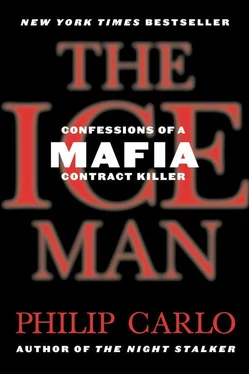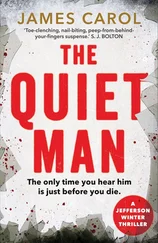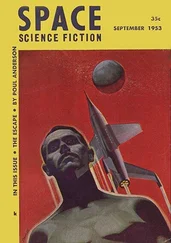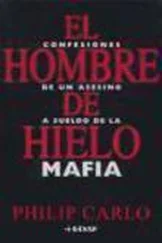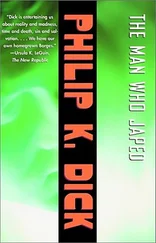As Richard made his way out of town, he passed a hardware shop with ladders and colorful wheelbarrows out front; he turned around, went back, and bought a long-handled copper-headed spade, then continued on. He managed to get on a highway, drove on it for half an hour, pulled off, and went looking for a suitable place to get rid of the bodies, just as he had done when he was a boy back in Jersey City: déjà vu all over again. He hadn’t counted on any of this and didn’t like it, but it had to be done, so he was doing it. However, he would demand a larger share of the money now, and get it. It didn’t take Richard long to find a secluded area in the woods, dig a hole, quickly dump the two men in it, and cover it with dirt, leaves, and branches. He got back in the van and returned to Zurich, called Remi, and told him all was “taken care of.” He also told him to come get the van and return it. That done, Richard took a shower, met Remi, and returned the van—after making sure there was no blood inside it—and they went for dinner in a five-star French restaurant.
Remi was impressed. He couldn’t believe any one man could be so… efficient at making people—problems—disappear. He looked at Richard now with a newfound respect. Richard told him he wanted “a larger slice of the pie.”
“Of course, of course, you deserve it!” Remi said. “Absolutely!”
Two days later Richard returned to New Jersey, went back down to Georgia, deposited the latest check, and returned to Dumont. The task force was pleased to hear him talking on the phone again. Polifrone called him, beeped him, and Richard finally got back to Polifrone on October 8. He called him from a diner. Richard was by now expecting Polifrone to have the cyanide, and he asked him about it right off the bat. Again, however, Polifrone stalled him. Richard asked him about the IRA woman; Polifrone said she was pleased, that he was waiting to hear from her.
“How about this Jewish kid?” Richard asked.
“He moves around a lot, travels a lot. I should be hearing from him soon. You’ll be around?”
“I’ll be around. He who hesitates is lost, my friend,” Richard said.
“You are right about that.”
“Gotta move while the iron is hot,” Richard said.
“I hear you,” Polifrone said. “I’ll let you know when the time is right.”
They hung up. Richard was beginning to think Polifrone was, in a word, bullshit. If he had what he said he had, could get, it would be on the table by now. Polifrone was, Richard decided, just another bigmouthed wannabe braggart. He’d met this kind of man all his life. Nothing new. People who said they had all these contacts, knew all these people, turned out to be as empty as a used paper bag.
Polifrone was thinking Richard was cold and distant, that maybe he had been stringing Kuklinski along for too long. He was right. He knew if he didn’t deliver something soon, Kuklinski would just move on—stop returning his calls altogether.
Which, apparently, is exactly what happened.
Polifrone called, left messages, beeped Richard, without any response. One time “Tim” (Spasudo) called him back, but that didn’t accomplish anything one way or the other; the task force knew Spasudo was just a tool, a shill, for Richard. The situation was becoming untenable. Bob Carroll talked about bringing in Kuklinski on what they had so far, but in the end it was decided they needed more if they really wanted to put Kuklinski away for good. One of the guys taped a mug shot of Richard onto a new bottle of Jack Daniel’s, which they sparingly drank from during late-night brainstorming sessions. It became a ritual. When they truly nailed Kuklinski, Carroll promised, there would be bottles of good champagne.
Finally, toward the end of October, Richard did call Agent Polifrone back. He said he’d been busy, that he had misplaced Polifrone’s number. He didn’t seem interested anymore. He was, Polifrone knew, ready to spit the hook. Polifrone told Richard the rich Jewish kid was back—asking for product, anxious for it—and the IRA broad wanted to place an order… a big one, he said.
Reluctantly, Richard agreed to meet Polifrone again, and a time was set for October 26, again at the Vince Lombardi rest stop, this time inside the Roy Rogers there. There was, as before, enough time for the task force to set up proper surveillance and backup for Polifrone. Jersey plainclothes detectives stationed themselves in and around the Roy Rogers. Rough-and-ready Ron Donahue was sitting inside the Roy Rogers, nursing his second coffee. It was still lunchtime and crowded. The weather had grown much colder. The sky was low and gray and mean, as if a storm were about to strike. Polifrone was on edge. He well knew he’d lost the momentum he’d had with Richard. Too much time had gone by, and he hadn’t delivered anything but promises. Not good. For all he knew, Richard was in fact onto him and was planning to kill him. Polifrone made sure he had quick and easy access to his heat. He was coiled like a rattlesnake about to strike, ready for action, whatever it was.
Polifrone took solace in the presence of Ron Donahue. If Kuklinski had to be subdued, put down, killed, Ron Donahue was the man to do it, Polifrone knew. His toughness was legendary in police circles. There was tension, palpable and real, in the chilled fall air.
Richard showed up on time, at 2:00 P.M. sharp, driving a red Olds, Barbara’s car. He had on sunglasses, which Polifrone didn’t like because you couldn’t see his eyes.
“Hey, Dom, what’s new?” Richard greeted the agent, seemingly aloof, not at all friendly. Polifrone said he was hungry.
“Would you like something, Rich?” he offered, gesturing toward the restaurant.
“Nothing for me… just coffee,” Richard said. Polifrone bought two coffees, fries, and a burger for himself. They took seats. As the agent ate he asked Richard about more hit kits, how many could he get, and when he could get them.
“You can,” Richard said, “get all you want, but they are down in Delaware. I’m not bringing them across the state line.” So there it was—Richard was backing off, clearly not being as congenial as before.
“Sure, I’ll get them, no problem. Just tell me where, okay? Can I get ten?”
“You can get all you want, my friend,” Richard said, the signal word—“friend”—that Polifrone’s days were numbered. All along Polifrone had been talking about a big buy, lots of money; now just ten hit kits. He’s full of shit, Richard thought. Bullshit.
Polifrone again pitched Richard the line about the rich Jewish kid, saying how he wanted two, maybe even three kilos of coke; and again he peppered Richard with questions about how the cyanide works, and again, Richard took the bait and went on to describe how once someone is sprayed in the face it’s all over:
“I’ve used it,” he said. “I sprayed guys and they were dead within minutes.”
“Really?” Polifrone said, wide-eyed. “Wow.”
“Really.”
“Okay, so when we take off the kid, you’ll do him with this, but the body, we gotta get rid of the body,” Polifrone further baited Richard.
“Why get rid of it?” Richard said, gobbling up the bait, his every word being immortalized. “Just leave him there. It’ll look like he’s sleeping… that he died a natural death. All neat and tidy.”
“Okay, sounds perfect. Let’s do it,” Polifrone said, and explained that he’d get the rich Jewish kid to a meeting at the rest stop, and Richard should come and see him and check him out. Richard said he’d be available, to let him know when.
Richard, still oblivious of the fact that Polifrone might be a cop, planned to kill “the Jewish kid” and Polifrone at the same time and take all the money. He had grown to really dislike Polifrone and looked forward to killing him—if there really was a Jewish kid with bucks looking to score. He had his doubts. They made plans to talk again soon, and Richard left.
Читать дальше
